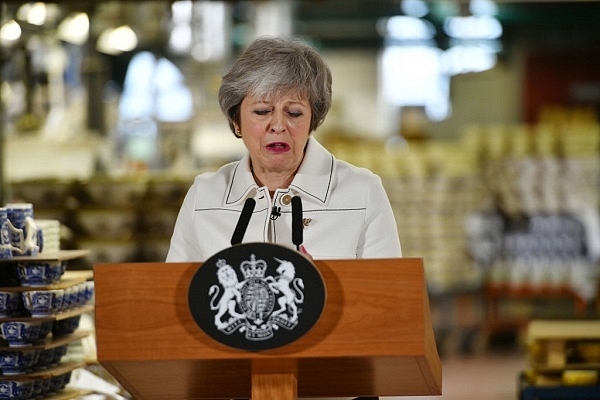
‘May’-Day Moment In British Politics: PM Theresa May Suffers Largest Defeat In House Of Commons Over Brexit Deal
Britain Prime Minister Theresa May on Wednesday (16 January) faced defeat in UK’s House of Commons after her Brexit deal was rejected by 230 votes, the largest defeat for a sitting government in history, reports British Broadcasting Corporation (BBC).
Following the vote, the Opposition led by Labour leader Jeremy Corbyn moved a vote-of-confidence in the House. This development could potentially trigger a new election in Britain.
The deal was a result of protracted negotiations between May’s government and the European Union (EU). The negotiations aimed at UK’s orderly withdrawal from the EU and also provided for a 21-month transition period to hammer out a free trade deal between the two. Though the Prime Minister put her full weight behind the deal, opposition leaders along with some Cabinet members criticised it.
However, this rejection of May’s deal will not impact delay UK’s exit from the EU which will take place on 29 March. But without an agreement between the two parties, the exit could turn chaotic.
What is Brexit?
It is a term used to reference the process of Britain exiting the EU. This process was initiated after a country-wide referendum held on 23 June 2016 voted in favour of it (51.9 per cent to 48.1 per cent).
EU, which is an economic and political partnership involving 28 European countries, decides a common policy for all its member countries. The “Leave” lobby contend that this compromises UK’s sovereign right to pursue independent national policies.
Also Read: Brexit It Is: 10 Major Implications Of Britain’s Decision To Quit EU